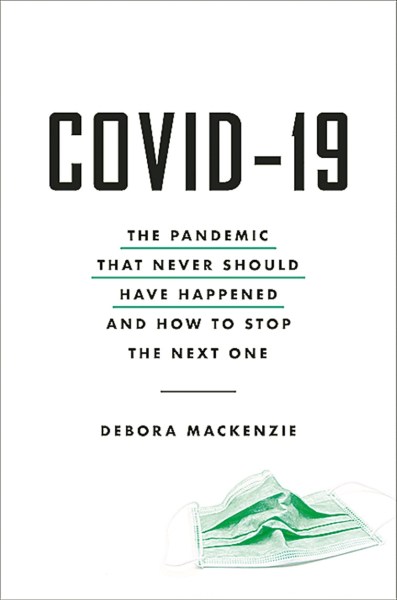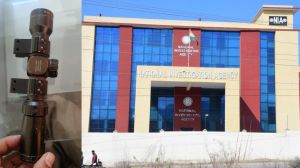Sunday Long Reads: Of domestic violence, celebrating Diwali, lockdown isolation, book recommendations and more
Here is your Sunday reading list
 The world as we’d known it had been turned inside out, upside down. (Photo: Getty)
The world as we’d known it had been turned inside out, upside down. (Photo: Getty)Where I belong
This year, the home has shifted in ways I could’ve little imagined. I’ve been a drifter — floating around Assam, moving from Shillong, my hometown, to Delhi, London, elsewhere, pronouncing with a small stamp of pride, that home is where I happen to lay my suitcase, that I— and I’d feel lucky for this — had many places to call home. Earlier this year though, in March, at the beginning of the pandemic, I was compelled to reassess this notion. I happened to be in Rome, on research work, and, suddenly, found myself in the midst of a worldwide flurry of lockdowns and travel restrictions, with rules changing daily or on the hour.
‘Homecoming will never mean the same again’
 Where we belong: Details from Land of Exile (2019) by Das (Courtesy: Gallery Latitude 28)
Where we belong: Details from Land of Exile (2019) by Das (Courtesy: Gallery Latitude 28)
This year, for the first time, I was not with my family for Lakshmi puja. Until now, for me, going to meet my mother and brother in Silchar, Assam, just required taking a flight. It was the same for my husband, who teaches at Kendriya Vidyalaya in Lunglei (Mizoram) and takes a flight to meet me in Vadodara. But all of that seems near impossible now.
Long Distance Champs
 Soaring high: A flock of bar-headed geese in flight. (Courtesy: Ranjit Lal)
Soaring high: A flock of bar-headed geese in flight. (Courtesy: Ranjit Lal)
On the banks of a pristine lake somewhere in the vastness of Mongolia, the Gaggles, a family of bar-headed geese, were preparing their brood of four for the biggest, most dangerous adventure of their young lives: the annual 8,000 km flight to India. Being next-gen goslings, the brood was not entirely happy with their parents’ decision.
“Get up. Begin your breathing exercises — in-out, in-out,” Papa Gaggle said, poking his sleeping brood.
Marking Time
 Self portrait of Gajraj Rao
Self portrait of Gajraj Rao
When the lockdown was announced in March, artist Sudarshan Shetty was preparing for a solo at Galerie Daniel Templon, Paris, in May, followed by another exhibition in Germany in August. With COVID-19 dramatically changing our world, the artist suddenly found himself confined to his home in Mumbai. Away from his studio, he used the time to introspect. “There was distress but, as an artist, it was also a productive period for me to step back and look at my own work and what I could do,” says Shetty.
A Safe Space
 The number of A rise in domestic violence has been one of the darkest features of the lockdown. (Source: Getty Images/Thinkstock)
The number of A rise in domestic violence has been one of the darkest features of the lockdown. (Source: Getty Images/Thinkstock)
A Bollywood buff, 23-year-old Shalini will be dancing on Diwali. “I am going to make it my best Diwali because it is a festival that celebrates the idea of homecoming. I am back with my family after making an idiotic mistake,” she says, adding that she will not be hiding the bruises on her body with makeup.
A few days before the lockdown was announced on March 24, Shalini got married to a man she had met at a party four years ago. “As our bond was quite good, we decided to have a ceremony in a temple against my family’s wishes,” she says. Shalini wrote a crisp note to her father stating that she didn’t want a single paisa or an inch of his property. “I will prove to you that my husband can keep your daughter happy and achieve success on his own merit,” it said.
Soldiers without borders
 The closing months of 1945 recorded how colonised and exploited people could support each others’ struggles for freedom, or else be used to suppress them. Neither story is taught, because neither is useful for nationalist myth-making and dogma today. (Imperial War Museum, Digital Archive)
The closing months of 1945 recorded how colonised and exploited people could support each others’ struggles for freedom, or else be used to suppress them. Neither story is taught, because neither is useful for nationalist myth-making and dogma today. (Imperial War Museum, Digital Archive)
IN EARLY November, 1945 — three months after the end of World War II — Havildar Abdul Rahman found himself still in battle. He had been in service his entire adult life: enlisted at the age of 18, from Sahiwal in the heart of Punjab, just weeks before the British Empire’s war began. Since then, his regiment, the 3/9 Jats, had faced Rommel’s armoured manoeuvres in the Libyan desert in the summer of 1942; and pried Japanese machine-gunners out of dugouts in the green hills of Imphal two summers later. On he fought: out of the Imphal siege and down through Burma, until the middle of August, when Japan surrendered.
‘My parents and I understand each other better now’
 A new view: Yadav on the roof of his home in Mainpuri
A new view: Yadav on the roof of his home in Mainpuri
“Have you watched Mirzapur? The violence portrayed in the show is the reality of the city I call my hometown,” says Udit Yadav, about Mainpuri, Uttar Pradesh. He was 11 when he was packed off to nearby Firozabad, which had better schools. However, it was in Delhi — his “pehla ishq (first love)” — that he found a home. He moved in 2013 to study at Delhi University and joined Asmita Theatre Group soon after. This is where he discovered art, literature, poetry and Urdu. He is also learning Dastangoi, a traditional form of storytelling that flourished in the old city.
The insider’s view
 NK Singh receiving a memento from Pope John Paul II during PM Vajpayee’s visit to Italy. (Courtesy: Rupa Publications)
NK Singh receiving a memento from Pope John Paul II during PM Vajpayee’s visit to Italy. (Courtesy: Rupa Publications)
I have submitted the report of the Finance Commission for the financial year 2021 to the president, which is now in the public domain. We have commenced work for the main report to be submitted by October 2020 for the five-year period thereafter (2021-26).” NK Singh has worn several hats and gloves, since he has not only been at the ringside, but inside the ring. In a striking coincidence, unless it is by choice, publication of this autobiography and submission of the 15th Finance Commission Report are synchronised (though NK does say he has been working on this autobiography for more than three years).
Filling the Gap
 Chances are one would like Inside Story only if one agrees with the author’s perspectives on literature, and, in fact, life in general.
Chances are one would like Inside Story only if one agrees with the author’s perspectives on literature, and, in fact, life in general.
Author: Martin Amis
Publisher: Jonathan Cape
Pages: 560
Price: Rs 799
Martin Amis is 71. He is, one must add, one of the most skilled writers of the English language in the modern era. Amis’s talent for writing dazzling prose was in evidence in The Rachel Papers, with which he had made his literary debut in 1973. It was even better represented by the works that followed, among them Money (1984), London Fields (1989) and the Booker nominee that failed to win the prize, the brilliant Time’s Arrow (1991).
Express Editors Recommend: Viral Attack
 Know more about the current setting with these books.
Know more about the current setting with these books.
COVID-19: The Pandemic That Should Never Have Happened, and How to Stop the Next One
Debora Mackenzie

Mackenzie, a science journalist, has been writing about infectious diseases for three decades and her authority shows in this comprehensive book about the COVID-19 pandemic. She begins with the origins of SARS-COV-2, the virus behind the disease, and proceeds to explain how zoonotic diseases like this develop and why overcoming them in the past, such as during the 2002 SARS epidemic, has largely been a matter of luck. The last chapter is particularly useful, as it gives a point-by-point approach for the future, including suggesting alternatives to the profit-driven approach to epidemiological research.
Merit and Its Discontents
 Perhaps, the rising doubts about the metrics of merit would have remained confined to academic realms had it not been for the recent publication of The Tyranny of Merit by Michael J Sandel.
Perhaps, the rising doubts about the metrics of merit would have remained confined to academic realms had it not been for the recent publication of The Tyranny of Merit by Michael J Sandel.
Author: Michael J. Sandel
Publisher: Farrar, Straus and Giroux
Pages: 288
Price: Rs 799
In this college-admission season, Pune’s Chirag Falor not only topped the advanced joint entrance exams for the Indian Institute of Technologies (IIT) — a dream for countless youngsters — but went a step further and said no to the IITs as he has already secured admission to the Massachusetts Institute of Technology.
In the midst of this celebration of merit, another news story that was barely noticed was the death of Arif Khan, an ambulance driver who relentlessly ferried the bodies of COVID-19 victims from Delhi’s Hindu Rao hospital to crematoriums for over three months. The sole breadwinner of his family, Khan slept in his van all this while so as to save his wife, two sons and two daughters from the infection. However, he eventually fell prey to the virus. His accomplishments were as crucial to our society as those of any super-achiever, if not more. His job, though, is not considered to require merit.
- 01
- 02
- 03
- 04
- 05































